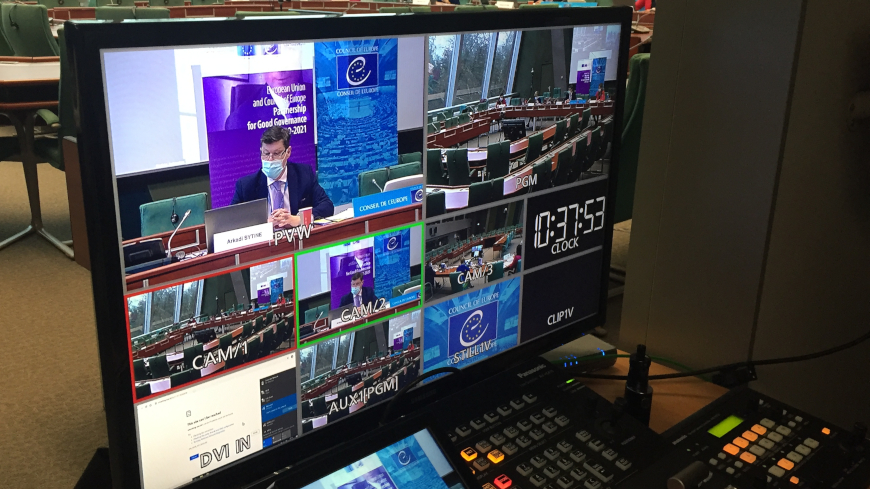The European Union and Council of Europe joint programme on Partnership for Good Governance (PGG) 2019-2021 held the second Steering Committee meeting for Azerbaijan on Monday 1 February 2021 in online format. The aim of the meeting was to present the state of implementation and the results of the programme and discuss plans for 2021.
Participants assessed the impact of the COVID-19 on the PGG implementation and discussed mitigation measures undertaken by the project teams to address the most urgent needs of the Azerbaijani authorities with regard to the domestic reforms in the field of judiciary, combating corruption and discrimination.
The programme is implementing three country-specific projects in Azerbaijan for the period 2019-2021, with a total budget of around 2 million euros. These projects assist the country’s authorities to counter money laundering and asset recovery, strengthen the efficiency and quality of the judicial system and to raise awareness of the Istanbul Convention and Gender Equality Standards.
In addition to the country-specific projects, Azerbaijan is also taking part in regional PGG projects aimed at preventing and combating economic crime, facilitating the access of women to justice as well as strengthening the access to justice through non-judiciary redress mechanisms for victims of discrimination, hate crime and hate speech, with a total budget of around 3,7 million euros.
The European Union provides 80% of the funding of the projects, whilst the Council of Europe provides 20% of the funding and is in charge of their implementation.
Ambassador Kestutis Jankauskas, Head of the European Union Delegation to Azerbaijan, Verena Taylor, Director, Office of the Directorate General of Programmes, Council of Europe, and Leyla Hasanova, First Secretary, Department of Cooperation with Human Rights Institutions, Ministry of Foreign Affairs of Azerbaijan, PGG National Coordinator opened the meeting.





